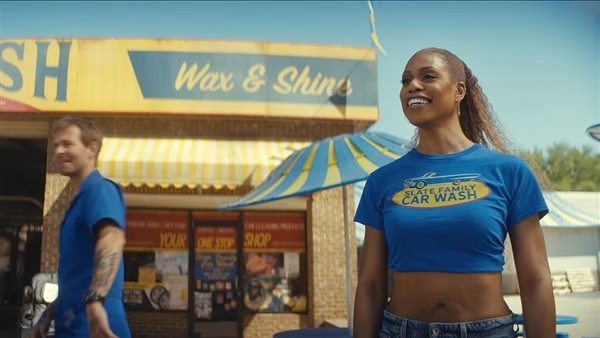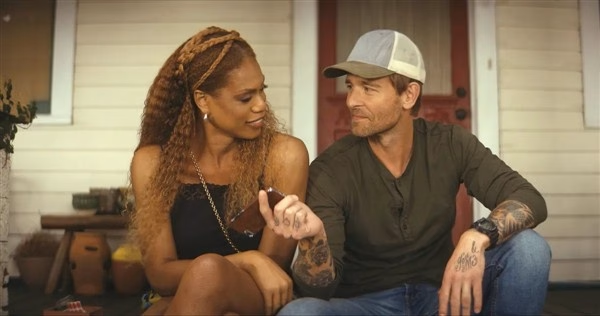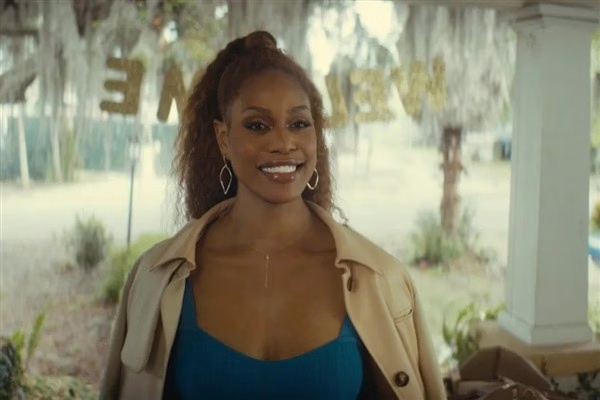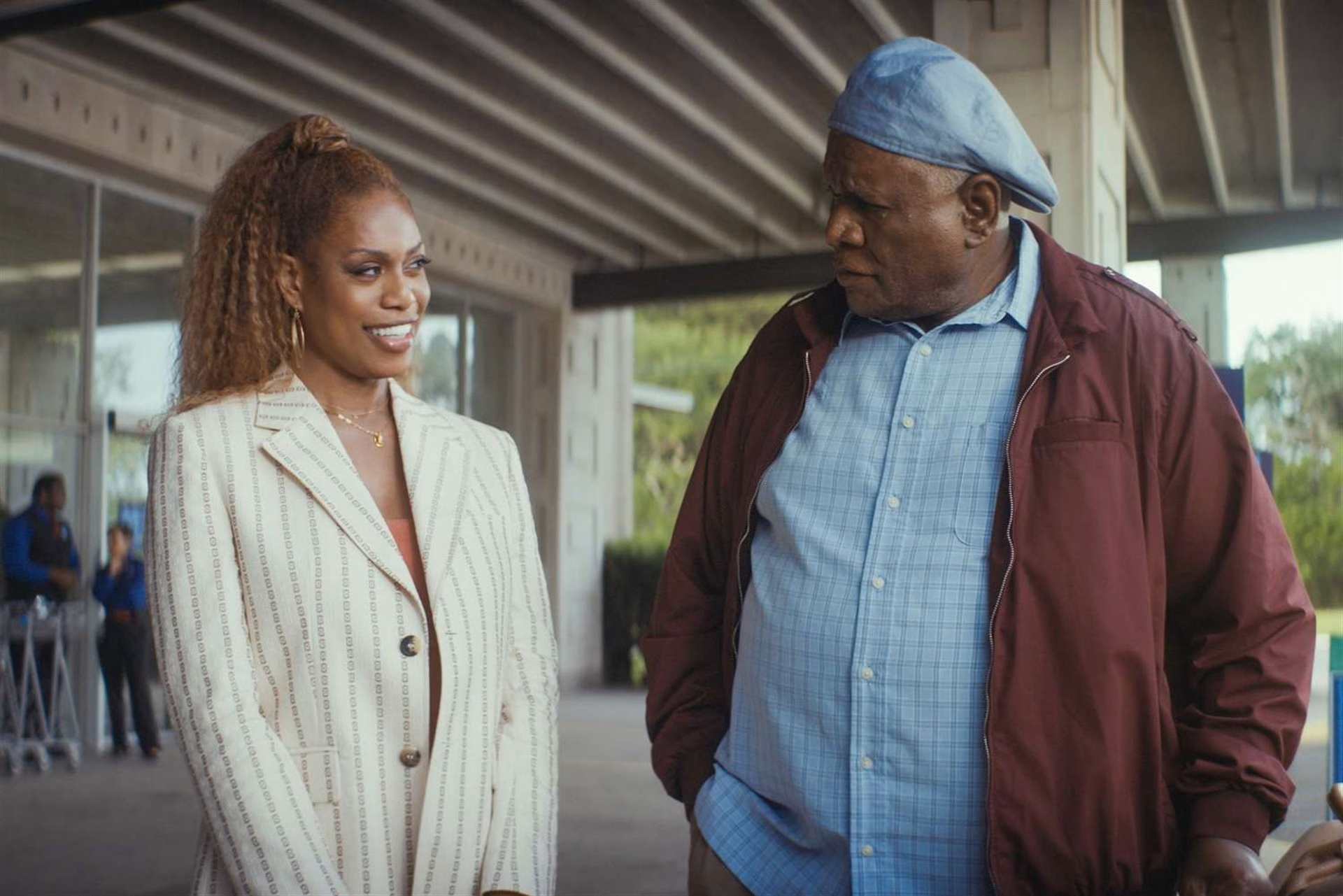Clean Slate
Created by Laverne Cox, George Wallace, and Dan Ewen
Season 1 available on Prime Video (all episodes watched for review)
The worst part of Clean Slate, Amazon’s unassuming, comfortable little series about a trans woman returning home to Alabama after 23 years in New York, is that it just feels like its getting started when its eight episode season comes to an all-brief end. Quiet, laid back, and oddly fantastical, Clean Slate is a family comedy (the last produced by the great Norman Lear before his passing) built on a familiar template – but its one the series, at its best moments, appears ready to break out of.
Co-created by co-stars Laverne Cox and George Wallace (alongside Playing with Fire and Dear Santa scribe Dan Ewen), Clean Slate is one of the last holdovers from Amazon’s purchase of FreeVee – and like High School and The Pradeeps of Pittsburgh before it, is a welcome slice of TV, adapting familiar formats (here, the intergenerational sitcom, ala everything from All in the Family to Mom) from a diverse set of perspectives. Clean Slate tells the story of former art gallery owner Desiree Slate, daughter of car wash owner and estranged father Harry, and her attempts to reintegrate herself into her hometown – 23 years after leaving town as Harry’s son Desmond.

Immediately, one would assume Clean Slate is a series in the vein of All in the Family or the Once Upon a Time reboot, both Lear comedies steeped in the tradition of debating sociopolitical issues through the lens of traditionally structured sitcom stories. And to a degree, that’s exactly what Clean Slate is – but it tackles its touchier subject matter with an extremely light touch, a shift that feels intentional to ground the story as one about a father and his child, rather than one reflecting on the increasingly hostile and dangerous world modern America is for trans people.
That’s not to say Clean Slate doesn’t broach these issues at times – multiple episodes deal with Desiree’s attempts to be recognized by her chosen name at her local church – but across its brief four hour running time, there are a number of distinct choices made to soften the edges around Desiree’s journey as a trans woman, to focus more on her journey as a daughter estranged from her family, her culture, and her identity. Some may argue this minimizes her story; in reality, normalizing her story and journey within the bounds of more traditional, low-stakes narratives makes the radical point that progressive comedy doesn’t have to announce its pronouns at the door, or Teach A Lesson with every episode (or, on the other side, take the Shifting Gears approach to political commentary).
At first, Clean Slate really goes out of its way to avoid being too much of anything; the first half of the season keeps its cards close to its chest, relying on very simplistic joke structures and situational comedy as a background for very subdued conflicts, like “Opal’s Day Off”, where a character’s suspension from school leads to the main ensemble… going to a theme park for the day. Everything is handled with such a light touch and a quick resolution, it doesn’t leave a lot of room for the conflicts to breathe or develop any kind of pathos; even Harry’s misgendering of Desiree lasts for two seconds and one conversation, before its a forgotten plot point, never to be addressed again.

This can make the storytelling of Clean Slate feel frustrating and undercooked – which in turn make some of its attempts for cathartic storytelling feel a bit cloying. There’s a lack of friction that takes time to get used to; for a Lear comedy, Clean Slate is decidedly pacifistic – especially when it comes to its secondary characters, which include Louie’s effervescent mother Ella (the always pleasant Telma Hopkins) and Mack (Jay Wilkinson), a felon-turned-car wash co-owner who shares some wonderful slow-burn romantic tension with Desiree through the first season. There are hints of Americana blue-collar struggles and interpersonal conflicts suggested with each of its small cast of characters, like Harry still grieving the loss of his wife (and Desiree’s mother), Louie struggling to come out, and Mack’s journey as a single father – but with only eight episodes and a distinct focus on Harry/Desiree centric stories, none of these stories are really developed, which make Clean Slate feel like it takes place in a small world isolated from the harsh realities of its own setting.
Lest we forget, Alabama is one of the worst educated, poorest, most anti-trans states in the country… that is not what we see in Desiree’s little pocket of the world. So when Clean Slate does start to lean into more serious, complex territory, like the election in “Pillars”, or the season finale “Born Again… Again”, it feels like Clean Slate biting off a bit more than it even wants to chew – even though its lighter attempts at telling these stories do work well, especially when the series keeps its focus squarely on Desiree (through whom Cox delivers an absolutely fantastic performance; it’s a shame Clean Slate feels like a one-and-done series, because the layers of her performance really start to shine in the final two episodes). It’s not clear whether Clean Slate does this because it is afraid of alienating a potential audience, or simply because its real attentions are elsewhere with its characters; regardless, anytime Clean Slate steps outside its bubble and briefly dips its toes in choppier, more hostile waters, it feels like a series resisting its own attempts to be provocative or transgressive.

In a more just world, Clean Slate would be given a second season with more episodes and an expanded budget (for a series that has episodes directed by the likes of Nisha Ganatra, Matthew A. Cherry, and Randall Keenan Winston, it looks incredibly cheap and small at times); there are hints of a much deeper series here, something more along the lines of One Mississippi or the lighter parts of Netflix’s Feel Good – and to be honest, this is the rare series I think would benefit from a slightly longer running time (and less slapstick). There is something moving and aspirational about Clean Slate – not quite along the lines of Rectify‘s most reflective moments, but something that takes a longer, deeper bath into the muddier, dirtier elements of its Alabama setting, and really forced itself to engage with the interiors of its characters on a more consistent level.
Though Clean Slate is a challenging series to recommend to anyone – its light touch with character, narrative, and setting is just too light to draw in an audience – it is certainly a relaxing, occasionally rewarding series (the series’ seventh episode, “Mess and Magic”, being the best of them) with an unexpectedly big heart (there are definitely worse ways to spend your time, if you’re looking for a new 2025 show). I imagine I will be among a small contingent of viewers who pine for the series to get a second season – though I’m not holding my breath for it, I certainly don’t regret the time I spent with the Slate family and their little aspirational corner of Americana.
Grade: C+
Discover more from Processed Media
Subscribe to get the latest posts sent to your email.


